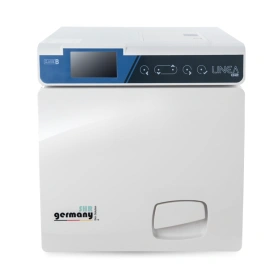The hot air sterilizer for beauticians: efficient sterilization for optimum hygiene
In the cosmetics industry, hygiene is of the utmost importance to ensure the health and well-being of customers. An indispensable tool that offers effective sterilization and optimum hygiene is the hot air sterilizer. With its outstanding features, this state-of-the-art sterilizer is an essential piece of equipment for any beautician.
The hot air sterilizer uses a hot airflow principle to ensure reliable and thorough sterilization of instruments and tools. The use of high temperatures kills microorganisms such as bacteria, viruses and fungi. This ensures that the instruments used are germ-free and the risk of infection or contamination is minimized.
A major advantage of the hot air sterilizer is its versatility. It can sterilize a wide range of instruments and tools, including tweezers, scalpels, nail scissors and much more. The generous capacity of the device allows cosmeticians to sterilize a larger quantity of utensils at the same time, saving time and optimizing the workflow.
In addition, the hot air sterilizer is easy to use and operate. With programmable functions and user-friendly interfaces, the device is easy to control. Cosmeticians can set the desired sterilization times and temperatures to meet the requirements of their work. This flexibility allows them to focus on the actual treatments while ensuring that the instruments are hygienic and germ-free.
Another advantage of the hot air sterilizer is its efficiency. Compared to other methods, sterilization with hot air does not require the use of chemicals or water. This saves costs and reduces the need for additional consumables. In addition, there is no waste or residue, which is environmentally friendly and contributes to the sustainability of the beauty salon.
Not forgetting the confidence factor that a hot air sterilizer creates. By meeting the highest standards of hygiene and providing a clean and safe environment for their clients, beauticians build trust and credibility. Clients can be reassured that their health is protected and that the beauty salon takes their safety seriously.
In summary, a hot air sterilizer is an essential tool for any beautician to ensure optimal hygiene and sterilization. With its effective heating technology, it provides reliable killing of microorganisms and minimizes the risk of infection. The versatility, efficiency and ease of use of the device make it a practical investment for any beauty salon.
The use of a hot air sterilizer is not only a sign of professional standards, but also a valuable marketing tool. By communicating the use of the latest sterilization technology, beauticians can gain the trust of their customers and attract new customers who value cleanliness and hygiene.
Overall, the hot air sterilizer is an indispensable tool that takes the beauty salon to a higher level of cleanliness and safety. Its effectiveness, versatility and ease of use make it a must-have for any beautician striving for the best results and optimal customer satisfaction.

